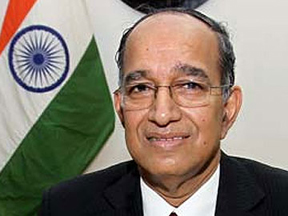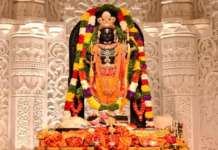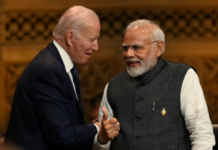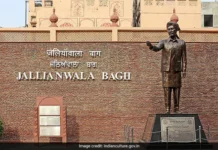 NEW DELHI: There is a legal lacuna in dealing with the growing menace of ‘paid news’ in the Indian elections and there is a need to make it an offence under the electoral law, says Chief Election Commissioner V S Sampath.
NEW DELHI: There is a legal lacuna in dealing with the growing menace of ‘paid news’ in the Indian elections and there is a need to make it an offence under the electoral law, says Chief Election Commissioner V S Sampath.
He is relieved at the fact the Election Commission has been able to “successfully complete” the 16th Lok Sabha elections in which tough measures like banning leaders from giving hate speeches were taken for the first time to ensure as clean a poll as possible.
Sampath also expressed satisfaction that voting has been an unprecedented high in the just-concluded poll because of new steps like last-minute enrolment of names in the voters list and a voter awareness program that helped in removal of urban apathy.
“There is need to make paid news an electoral offence under the Representation of the People Act. The Commission’s proposals are before the Law Ministry in this regard,” he told PTI in an interview in which he analyses various significant features of the general elections and the steps it took to complete the mammoth exercise in a free and fair manner.
‘Paid news’ is a practice by which a candidate in an election gets a news media carry favorable write ups in a newspaper or features on television channels for payment of a fee. The same material also appears in several newspapers on a given day. Some times money is also paid to blank out write ups on the rival candidates.
Sampath said compared to last Lok Sabha polls, the Commission adopted a structured response to the menace this elections.
“We had committees at the district level and state level to keep vigilance for detection of paid news. Notices were served in over 3,000 cases of paid news of which 7,000 have been confirmed. But because of the lacuna in the legal framework we are able to deal with paid news only from expenditure angle as of now,” he said. .
In an unprecedented action, a woman MLA from Badaun in UP was disqualified by the Election Commission a few years ago on the basis of a Press Council finding into a case of paid news complaint against her after it was detected that she had not disclosed the expenditure on paid news in her statement of expenses in the elections.
She challenged the EC decision in Allahabad High Court, which dismissed it. The Supreme Court also gave her no relief.
In a case relating to former Maharashtra Chief Minister Ashok Chavan, the Supreme Court had earlier this month ruled that the Commission has the jurisdiction and can enquire into a complaint on paid news against a political leader if the expenditure incurred on it is not disclosed.
A bench headed by Justice A K Patnaik had dismissed the plea of Chavan challenging the Commission’s jurisdiction to enquire into such issues and directed the Commission to enquire into the complaint within 45 days.
Speaking about the just-ended Lok Sabha elections, the Chief Election Commissioner said it was quite an amazing and mammoth task involving collection of machines from over 900,000 polling stations by employing about 7 million polling staff and a huge number of security forces both central and state personnel.
“Democracies around the world are eagerly watching the great experiment with great envy one more time. As a nation we are proud that we are capable of delivering a smooth, peaceful and transparent elections. The seamless manner in which counting of votes took place in all the constituencies on a single day and most of the results were coming out by afternoon bears testimony to the maturity and capability of the systems in India in election management. I do feel relieved that we have been able to successfully complete this exercise,” he said.
Asked about the challenges faced by the Commission in the general elections, Sampath said each election is unique.
“In every election there are additions in complexity and an ever-increasing number of electorate,” he said. -PTI






